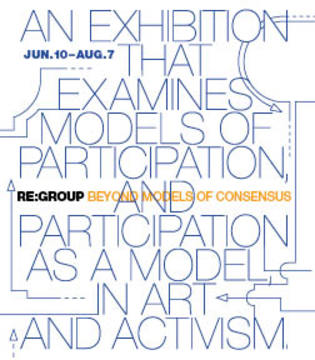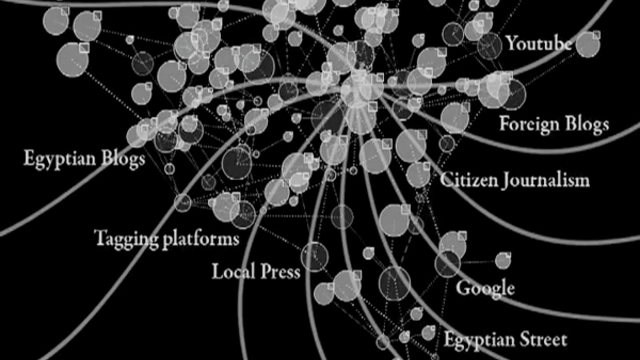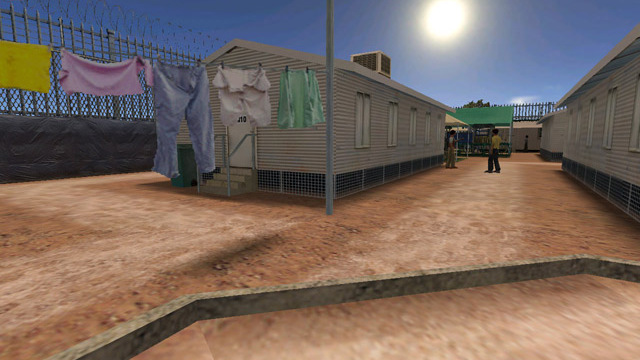Search results for 'media'
N5M Zapbook - Table of Contents
Working Papers for The Next 5 Minutes
Conference, Exhibition and TV Program on Tactical Television
Amsterdam, October, 1992
Edited by Amsterdam Cultural Studies
(Jeroen van Bergeijk, Geke van Dijk, Karel Koch, Bas Raijmakers)
((( i ))) " the whole organism is more than watching "
Trouble is in bloom ! Across the globe there's the irrepressible sensation that the indy media makers will spread faster than the Clear Channel acne-brand of entertainment pustules and prozac-like programming, synergize far more dramaticly than the Republican grey goo version of capitalism ...
Digital Partisans
On Mute and the Cultural Politics of the Net
War Veteran Vehicle
A project of Krzysztof Wodiczko and Robert Ochshorn
The veteran vehicle was developed in order to give a public voice to veterans struggling with the difficulties of returning to civilian life.
Rise and Decline of the Syndicate: the End of an Imagined Community
To: nettime-l {AT} bbs.thing.net
Subject: <nettime> Rise and Decline of the Syndicate
Date: Tue, 13 Nov 2001 15:52:49 +0100
The Syndicate mailing list imploded and went down in August 2001, destroying the life-line of the Syndicate network. The network had been in a shaky situation for a while, due - we believe - to the destabilisation of the problematic balance between personal contacts of list members, lurking and filtering-and-not-reading-let-alone-posting subscribers, and a growing number of self-promoters who used the list as a personal performance space and disregarded the social rules of the online community.
Rehearsal of Memory
About his CD-ROM production called ROM
The production of this interactive programme has been commissioned by
Video Postive 1995 and the construction of the artwork is set to take
place during January to April 1995.
Beautiful Trouble - A toolbox for revolution
Introduction
By Andrew Boyd & Dave Oswald Mitchell
"The clowns are organizing. They are organizing. Over and out."
-Overheard on UK police radio during action
by Clandestine Insurgent Rebel Clown Army, July 2004
Conference Report ‘The Society of Post-Control’
Summary of the extended conversation on the emergence, consequences, and activist responses to the concept of "post-control"
Report of the conference 'The Society of Post-Control', organised by Eric Kluitenberg and David Garcia, tying into the opening of the exhibition As If.
Occupy Monsanto
This is a Call to Action for a
Non-Hierarchical Occupation of Monsanto Everywhere
Whether
you like it or not, chances are Monsanto contaminated the food you ate
today with chemicals and GMOs. Monsanto controls much of the world's
food supply at the expense of food democracy worldwide. This site is
dedicated to empowering citizens of the world to take action against
Monsanto during the week of September 17th, 2012.
Why We Protest: Freedom of Information
'Everyone has the right to freedom of opinion and expression; this
right includes freedom to hold opinions without interference and to
seek, receive and impart information and ideas through any media and
regardless of frontiers.' -Article 19, United Nations Declaration of
Universal Human Rights
The Day We Fight Back
On Anniversary of Aaron Swartz's Tragic Passing, Leading Internet Groups and Online Platforms Announce Day of Activism Against NSA Surveillance.
Mobilization, dubbed "The Day We Fight Back" to Honor Swartz & Celebrate Anniversary of SOPA Blackout.
Jadaliyya Launches DARS Page: Daily Acts of Resistance and Subversion
The DARS Page chronicles daily acts of resistance and subversion (DARS) in contemporary Arab societies and beyond. All forms of resistance and subversion to political, economic, social, or cultural forms of exploitation will be of interest. This includes resistance to authoritarianism, occupation, imperialism, and social norms, and the many ways these are subverted.
ReadRecombinant Television
VakuumTV was founded in February 1994 on the initiative of Laszlo Kistamas and currently includes Dora Csernatony, Ferenc Grof, Laszlo Kistamas, and Attila Till. Its members presented weekly broadcasts on Monday nights at the most popular cultural club in Budapest, Tilos az A. Between February 1994 and September 1997 Vakuum TV broadcast 52 shows, and after 3 years of rest, started broadcasting again in 2000. Each show blended short films, interactive engagements between the audience and the announcer, and live performances but each used a very different content to create a parallel televisual reality.
ReadEngineering of Consent
One of the major challenges facing citizen groups campaigning to prevent, minimize, limit or regulate socially-irresponsible or environment-degrading practices of transnational corporations is how to deal with the corporations' increasing call for 'dialogue' and 'cooperation'. Many transnational corporations say they have seen the error of their ways and have rectified their mistakes. Eager to do their best for 'our common future', they claim to be listen to their critics. Thus 'dialogues' with companies or industry organizations are frequently portrayed as the way ahead for citizen groups seeking corporate accountability, rather than 'confrontational' strategies such as boycotts. What are the dangers and limits of doing so?
Change for the Machines
'CYBERPOSITIVE'
O(rphan) d(rift>)
Cabinet Editions
ISBN 0-952-58240-6





